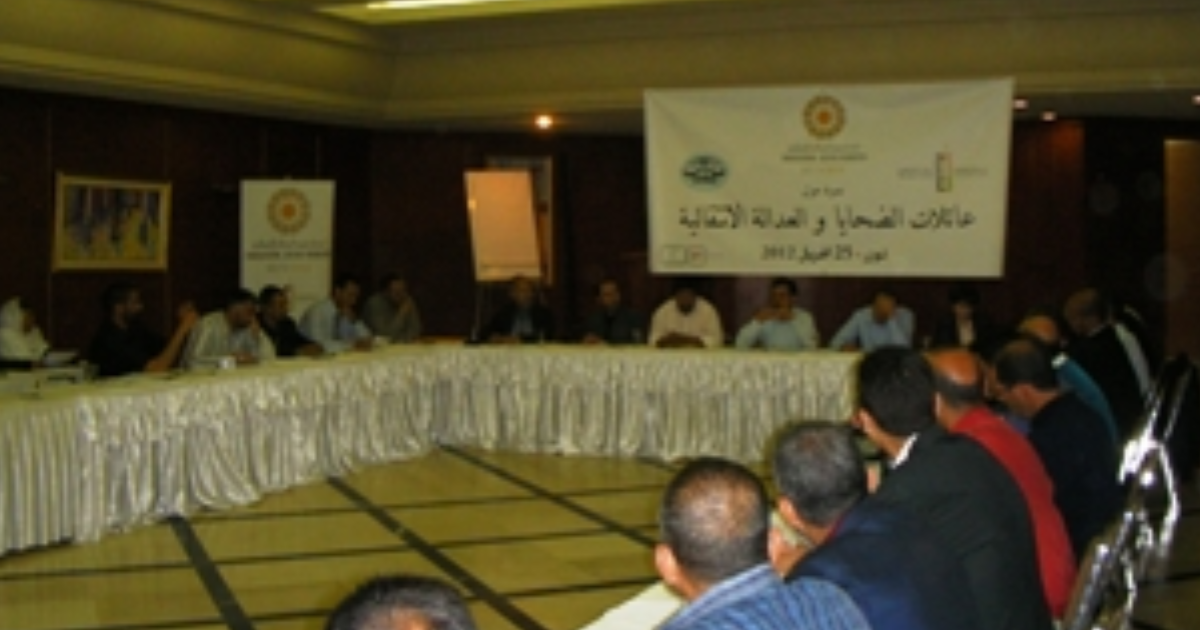The one-day long consultation involved a group of victims coming from the governorates and cities of the South of the country, including Kebelli, Gabes, Kasserine, Sfax, El-Kef, Mahdia, Mednine, Gafsa, Tozeur, Sidi Bouzid, Sousse, Tataouine and Monastir. These are among the most marginalised areas of Tunisia that were most affected by the violations under the previous regime. However, victims here have less access to information, especially on transitional justice.
The two experts that conducted the consultation, who also had taken part in a number of activities under the Transitional Justice Academy, engaged victims on the basic concept of transitional justice and their views and expectations in relation to truth-seeking; the notion of victims and nature of violations; reparations and rehabilitation; accountability and reconciliation; and the process of transitional justice in Tunisia. A specific session was also dedicated to women to allow them to express their opinion. Although women enjoy in Tunisia higher levels of equality than in many other countries, they are still often excluded from decision-making and find hard to have their interests represented.
Victims and their families suffered directly from the violations that transitional justice aims to address. As such, they are among the most relevant stakeholders in any transitional justice process. However, they have historically been involved to a lesser degree during the design of transitional justice mechanisms than other stakeholders. Consultation of victims in this initial phase is crucial to build their views and expectations into the fabric of transitional justice and to foster a sense of ownership of the whole process.
Tunisia has the opportunity to engage in this consultative process with victims properly, starting from the outset and making sure the national dialogue that is taking place in the country reaches out to all victims, especially vulnerable groups who have difficulties having their voices heard, let alone acted upon.
For- further information, please contact Alison Smith on asmith@npwj.org or +32-(0)2-548-3912 or Greta Barbone on gbarbone@npwj.org or +216 28385079.
For more information about NPWJ and KADEM’s work on transitional justice in Tunisia, please click here


